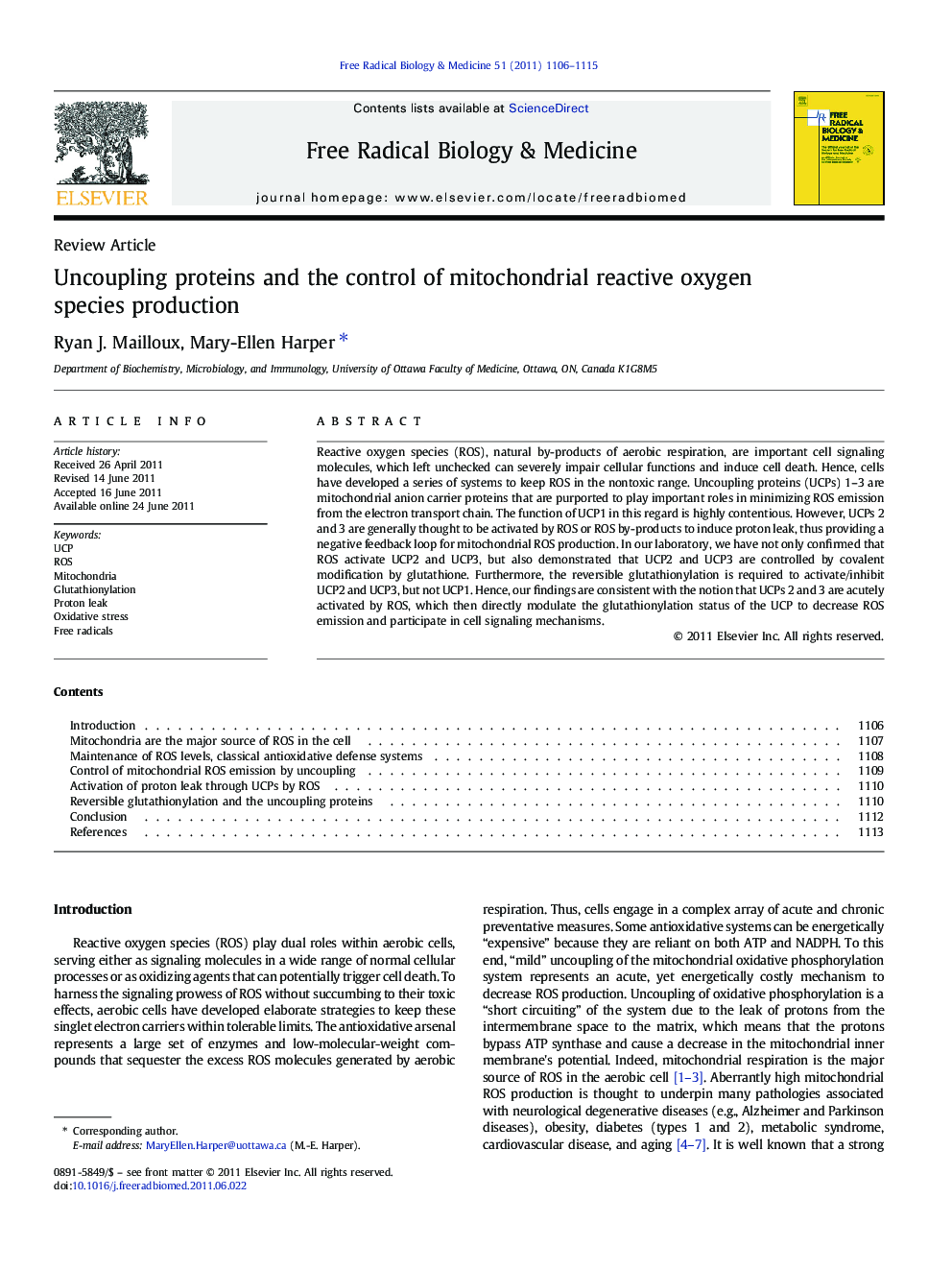| کد مقاله | کد نشریه | سال انتشار | مقاله انگلیسی | نسخه تمام متن |
|---|---|---|---|---|
| 1909139 | 1046709 | 2011 | 10 صفحه PDF | دانلود رایگان |

Reactive oxygen species (ROS), natural by-products of aerobic respiration, are important cell signaling molecules, which left unchecked can severely impair cellular functions and induce cell death. Hence, cells have developed a series of systems to keep ROS in the nontoxic range. Uncoupling proteins (UCPs) 1–3 are mitochondrial anion carrier proteins that are purported to play important roles in minimizing ROS emission from the electron transport chain. The function of UCP1 in this regard is highly contentious. However, UCPs 2 and 3 are generally thought to be activated by ROS or ROS by-products to induce proton leak, thus providing a negative feedback loop for mitochondrial ROS production. In our laboratory, we have not only confirmed that ROS activate UCP2 and UCP3, but also demonstrated that UCP2 and UCP3 are controlled by covalent modification by glutathione. Furthermore, the reversible glutathionylation is required to activate/inhibit UCP2 and UCP3, but not UCP1. Hence, our findings are consistent with the notion that UCPs 2 and 3 are acutely activated by ROS, which then directly modulate the glutathionylation status of the UCP to decrease ROS emission and participate in cell signaling mechanisms.
Journal: Free Radical Biology and Medicine - Volume 51, Issue 6, 15 September 2011, Pages 1106–1115